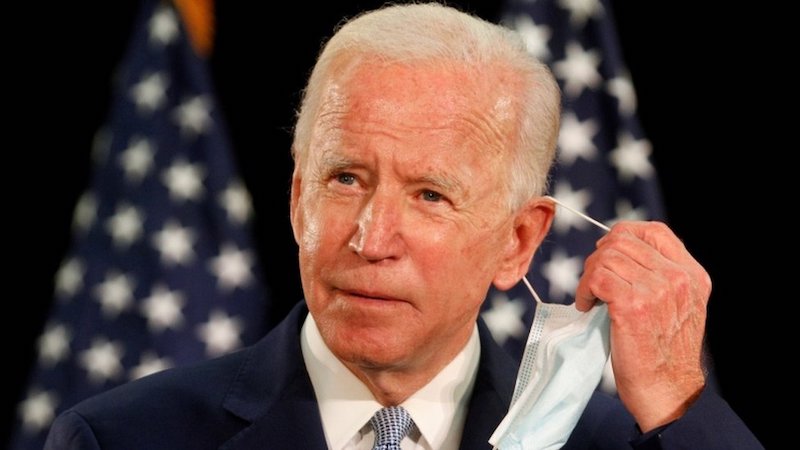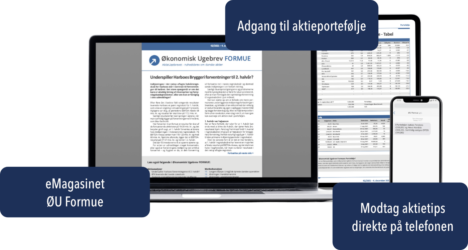My fellow Democrats, I have decided not to accept the nomination and to focus all my energies on my duties as President for the remainder of my term. My very first decision as the party nominee in 2020 was to pick Kamala Harris as my Vice President. And it’s been the best… pic.twitter.com/x8DnvuImJV
— Joe Biden (@JoeBiden) July 21, 2024
uddrag fra NY Times
Presidential Race, Endorses Harris
President Biden wrote on social media that he was ending his campaign for re-election after intense pressure from within his own party. He subsequently endorsed Vice President Kamala Harris to replace him atop the Democratic
President Biden, 81, abandoned his bid for re-election and threw the 2024 presidential contest into chaos on Sunday, caving to relentless pressure from his closest allies to drop out of the race amid deep concerns that he is too old and frail to defeat former President Donald J. Trump. After calling Vice President Kamala Harris an “extraordinary partner,” he endorsed her to take his place atop the ticket.
“It has been the greatest honor of my life to serve as your president,” he wrote on social media. “And while it has been my intention to seek re-election, I believe it is in the best interest of my party and the country for me to stand down and focus entirely on fulfilling my duties as president for the remainder of my term.”
After three weeks of often angry refusals to step aside, Mr. Biden finally yielded to a torrent of devastating polls, urgent pleas from Democratic lawmakers and clear signs that donors were no longer willing to pay for him to continue.
Mr. Biden’s decision abruptly ends one political crisis that began when the president delivered a calamitous debate performance against Mr. Trump on June 27. But for the Democratic Party, Mr. Biden’s withdrawal triggers a second crisis: who to replace him with, and specifically whether to rally around Ms. Harris or kick off a rapid effort to find someone else to be the party’s nominee.
The announcement by Mr. Biden, who is isolating with Covid, came just three days after Mr. Trump delivered an incendiary, insult-laden speech accepting his party’s nomination for a chance to return to the White House for a second term. Mr. Trump, who has been preparing for a rematch with Mr. Biden for years, will now face a different — and as yet, unknown — Democratic opponent, with only 110 days left until Election Day.
Here’s what else to know:
A political first: No sitting American president has dropped out of a race so late in the election cycle. The Democratic National Convention, where Mr. Biden was to have been formally nominated by 3,939 delegates, is scheduled to begin Aug. 19 in Chicago. That leaves less than a month for Democrats to decide who should replace Mr. Biden on the ticket and just under four months for that person to mount a campaign against Mr. Trump.
Spotlight on Harris: The president’s decision puts the vice president under renewed scrutiny, with some Democrats arguing that she is the only person who can effectively challenge Mr. Trump this late in the election. And they say the party will fracture if Democratic leaders are seen as passing over the first Black vice president. But others argue that the Democratic Party should avoid a coronation, especially given Ms. Harris’s political weaknesses over the last three-and-a-half years.
Age a chief concern: Mr. Biden’s re-election bid was brought down by longstanding concerns about his age and whether he remains physically and mentally capable of performing the job. Even before the debate, polls consistently showed that people thought he was too old, and majorities — even of Democrats — wanted someone younger to be president. Mr. Biden was born during World War II and was first elected to the Senate in 1972, before two-thirds of today’s Americans were even born. Mr. Biden would have been 86 at the end of a second term.
The debate moment: The White House and aides closest to Mr. Biden denied for years that his age was having any impact on his ability to do his job. But the debate with Mr. Trump in late June, which was watched by more than 50 million people, put his limitations clearly on display. He appeared frail, hesitant, confused and diminished, and was unable to make the case against Mr. Trump, a convicted felon who tried to overturn the last presidency
A huge part of why Harris has a major advantage over other Democrats is that she is likely to easily inherit the Biden-Harris campaign coffers. It would be much, much harder for other Democratic candidates to take over their campaign warchest, as we reported here.
Image
Now that President Biden has withdrawn from the presidential race, the question facing the Democratic Party is no longer whether he can be replaced at the top of the ticket. It is how to do it.
The process is complicated and opens the door to political upheaval between now and August, when Democratic delegates will gather at their convention to vote for a nominee.
Mr. Biden has the power to release all the pledged delegates he accumulated. When he does so, those delegates will be free to vote for whomever they choose. That could lead to an open convention, a rarity in modern American politics.
The prospect raises many questions.
Now what?
There is no clear answer. But there appears to be two ways this can go, based on interviews with Democratic Party leaders and strategists.
First, the party could rally around Kamala Harris, the vice president, as a unifying force during a time of crisis. That would be the easiest road to take. She has been vetted and is well-known among Democrats. She has run a national campaign before. And she could take over the Biden-Harris campaign apparatus and bank account.
Some Democrats have argued that anointing a candidate is risky, and say that the party would be better off with a competition and a more democratic selection process. That would require another candidate to get in the race. If that happens, there could be party-sanctioned forums across the country, with candidates questioned by a moderator in front of a national television audience. Short of that, the candidates could embark on a monthlong national campaign, jetting across the country to solicit support from state delegates and delegations.
Which Democrats might jump into the race?
The key person to watch is Ms. Harris If she becomes the consensus candidate, backed by Mr. Biden and other Democratic leaders, potential competitors with White House ambitions will have a big decision to make: challenge her, in a risky maneuver that could lead to damaging intraparty divisions, or stand aside in the name of Democratic unity, as well as their own future careers.
The Democratic Party has a deep bench now. Among the potential candidates to watch are a handful of governors Gretchen Whitmer of Michigan, Josh Shapiro of Pennsylvania, Gavin Newsom of California, JB Pritzker of Ohio and Andy Beshear of Kentucky. Other potential candidates include Pete Buttigieg, the secretary of transportation and senators Amy Klobuchar of Minnesota and Cory Booker of New Jersey.
Can Biden dictate his successor?
President Biden can certainly recommend what his delegates should do, and considering his standing in the party, he carries a lot of sway. But he does not control his delegates: He cannot tell them who to vote for next month. And party politics being what it is, they are most likely to go with whomever they think has the best chance to defeat Mr. Trump.
And any attempt to anoint his successor could risk setting of ideological and generational battling in the party, potentially weakening the ultimate nominee as he or she heads onto the battlefield with Mr. Trump.
What about all the money raised by the Biden-Harris fund-raising machine?
Mr. Biden and Ms. Harris have collected hundreds of millions of dollars in campaign funds over the past two years. That money has been allocated to the Biden campaign, the Democratic National Committee, and various state Democratic organizations. As of June 30, those organizations had a combined $240 cash on hand. Most of that money could be put into service on behalf of the next candidate.
There is one big exception. The Biden-Harris campaign has, as of May 30, $91 million. If Ms. Harris is the candidate, that money is hers. If it is another candidate, the Biden-Harris money could be returned to donors (highly unlikely) or transferred to a federal super PAC, which could spend it on behalf of the Democratic ticket. One candidate who would be free of these shackles is JB Pritzker, a billionaire who could finance the campaign on is own.
The clock is ticking, right? How much time does the Democratic Party have to settle this?
The Democratic Party is about to see if it can do an England: a huge consequential election in just over a month. Democrats gather in Chicago on Aug, 19 for their nominating convention; the nominee is scheduled to deliver the acceptance speech on August 22. The party sets the rules, and nothing is set in stone, but this pretty much needs to be settled by August 22. One more complication: The Democratic National Committee had been pushing for an earlier virtual roll-call in hopes of settling any doubts about Mr. Biden before the official vote, perhaps in late July or early August.
Who is being considered to replace Mr. Biden?
In addition to Ms. Harris, there is a slew of governors: Gretchen Whitmer of Michigan, Josh Shapiro of Pennsylvania, Gavin Newsom of California, JB Pritzker of Illinois and Andy Beshear of Kentucky. Also worth mentioning are Transportation Secretary Pete Buttigieg, Senator Amy Klobuchar of Minnesota and Senator Cory Booker of New Jersey.














